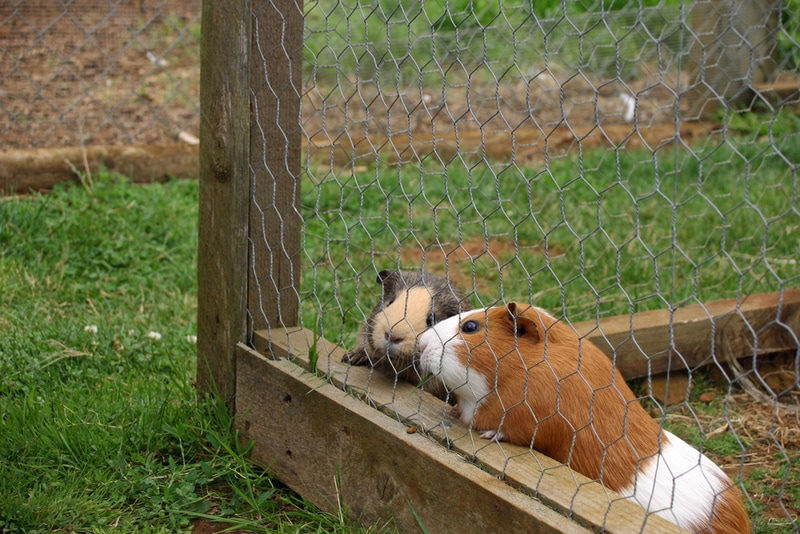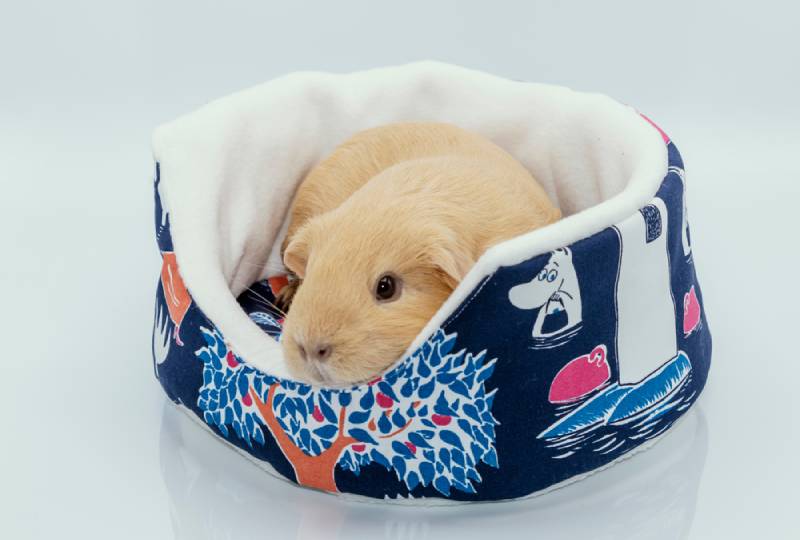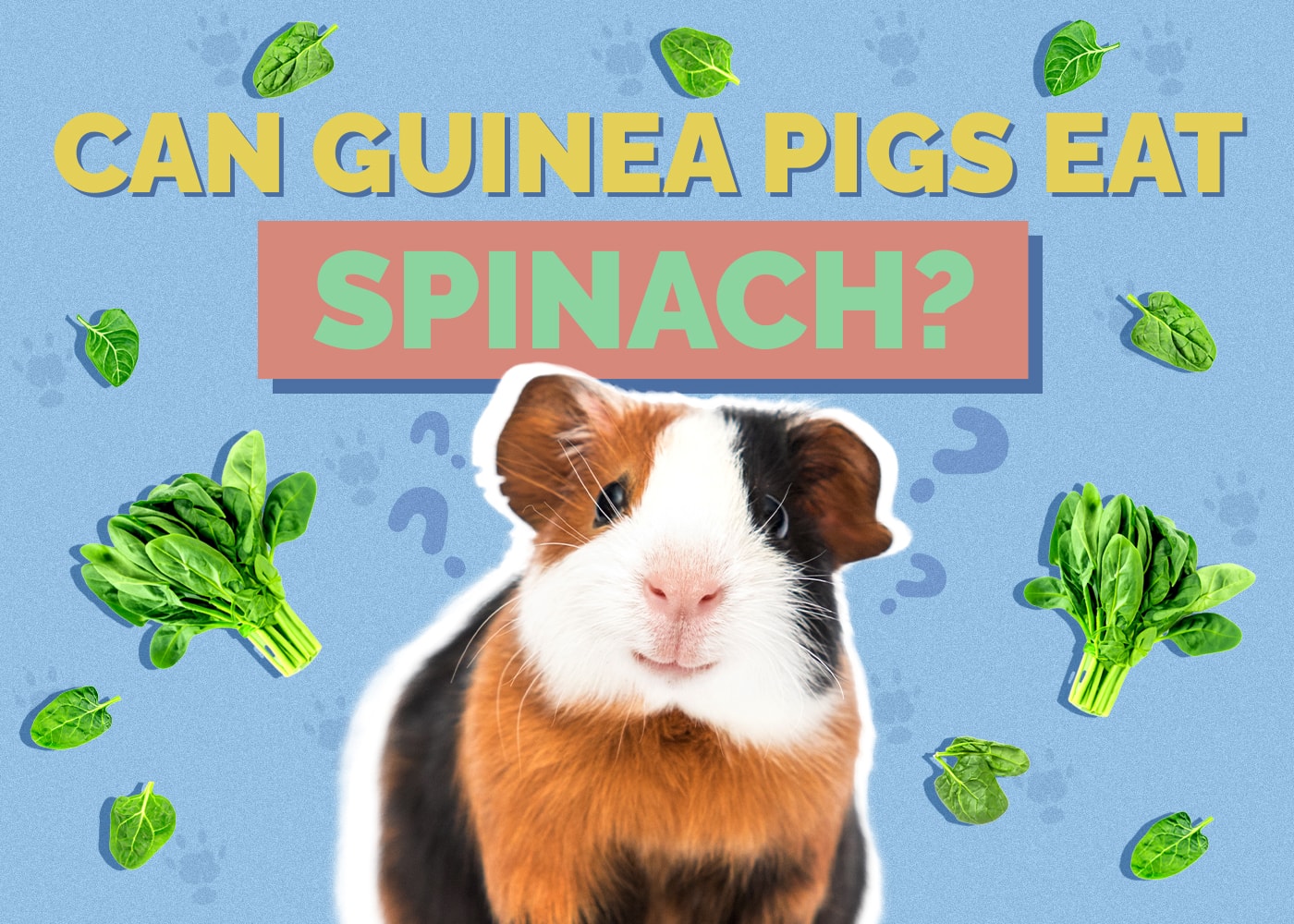Can Guinea Pigs Eat Dandelions? Vet-Approved Feeding Facts

Updated on
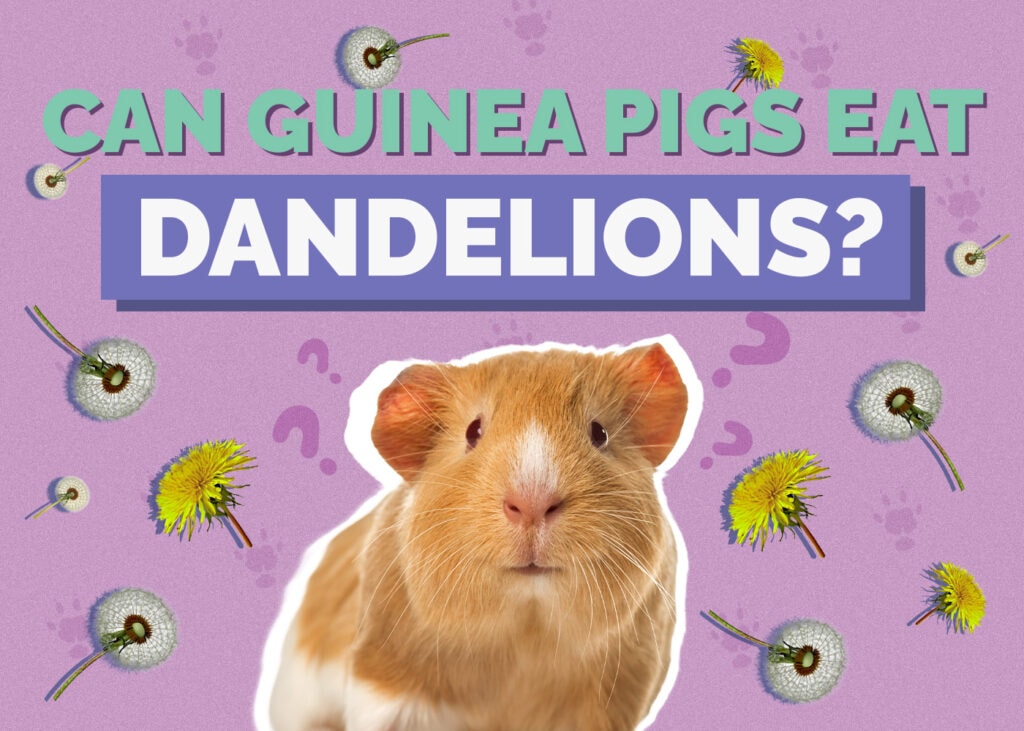
Guinea pigs thrive on a diet of mostly hay and forage, vegetables, and some fruits or treats. Flowers and weeds are often part of a guinea pig diet, but not all of them are safe and healthy.
Can guinea pigs eat dandelions? Yes, dandelions are generally safe for guinea pigs.
What Are Dandelions?
Dandelions are perennial weeds that are found all over the country. Though unwelcome in many people’s gardens, dandelions have a range of nutritional and medicinal purposes. Dandelion greens are rich in vitamins A, B6, C, E, calcium, copper, and potassium, while the flower itself can be used to make a honey-like product.
Both dandelion flowers and greens can be eaten by humans and guinea pigs as a healthy addition to a balanced diet.
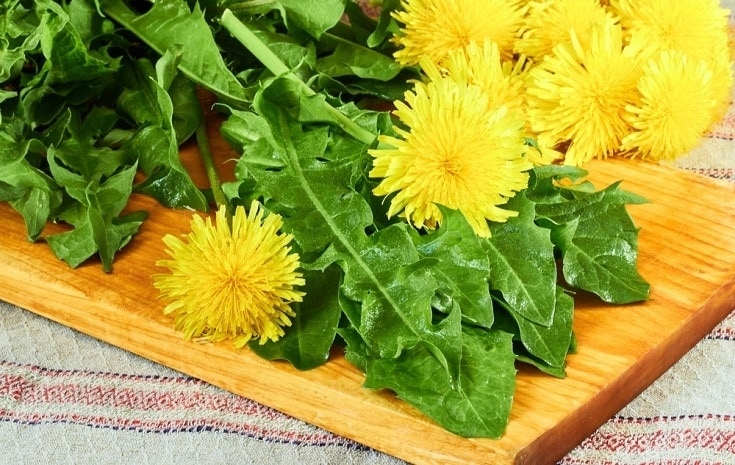
Are Dandelions Good for Guinea Pigs?
Dandelions have a lot of vitamin C, which is important for guinea pig health as they are unable to manufacture their own like dogs can. They also offer a range of vitamins and minerals that can round out your guinea pig’s healthy diet of hay and vegetables, including vitamin K and vitamin A.
There are some precautions to take when feeding dandelions to your guinea pig, however. Feeding too many dandelions can cause a vitamin C overdose in your guinea pig. Make sure you feed dandelions only occasionally in a rotation with other edible flowers.
What Dandelions Can Guinea Pigs Have?
Instead of picking dandelions in your yard, which could have herbicides or pesticides that could be harmful to your guinea pig, you can pick up dandelion mixes at pet stores. These dandelions have been harvested safely and are free of pesticides or other chemicals.
If you do want to feed wild dandelions, make sure you use only dandelions that you know haven’t been treated with chemicals. When you bring dandelions home, rinse them thoroughly with water to remove any residue from chemicals or animal waste.
During the season, you can feed a flower to your guinea pig two or three times a week. If it’s your guinea pig’s first time having dandelions, start slowly and watch for any adverse effects.
It’s also important that you can positively identify a dandelion. Plenty of flowers are toxic to guinea pigs, including sunflowers, daffodils, asters, chickweed, goldenrod, mallow, and yarrow. If you’re not positive that it’s a dandelion, leave it be and get your guinea pig a dandelion mix.

What Parts of Dandelions Can Guinea Pigs Eat?
Guinea pigs can have the yellow flower, petals, stem, root, leaves, and greens of the dandelion. Though you should feed dandelion flowers in moderation, dandelion greens can be a healthy addition to your cavy’s regular diet.
Can Dandelions Turn My Cavy’s Urine Orange?
It can be alarming the first time you feed your guinea pig dandelions and find bright orange or red urine, but it’s not a cause for concern. Dandelions may be yellow, but they’re heavily pigmented. Your urine would turn colors if you ate enough dandelions, and the effect is more pronounced in a small animal like a cavy.
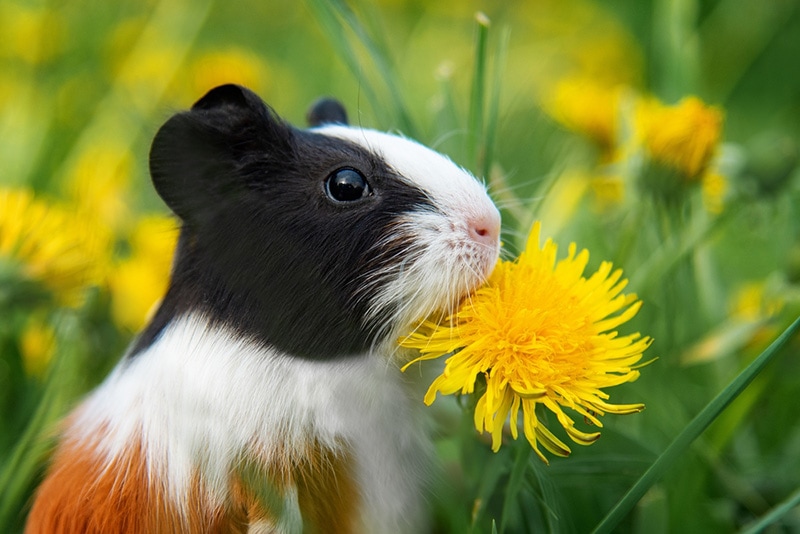
 Conclusion
Conclusion
Flowers and greens are part of a healthy guinea pig diet. Dandelions, an abundant weed, can be a healthy addition to your pet’s diet in moderation, but it’s important to take precautions to keep your cavy healthy and happy.
Featured Image Credit: AnnaNel, Shutterstock


